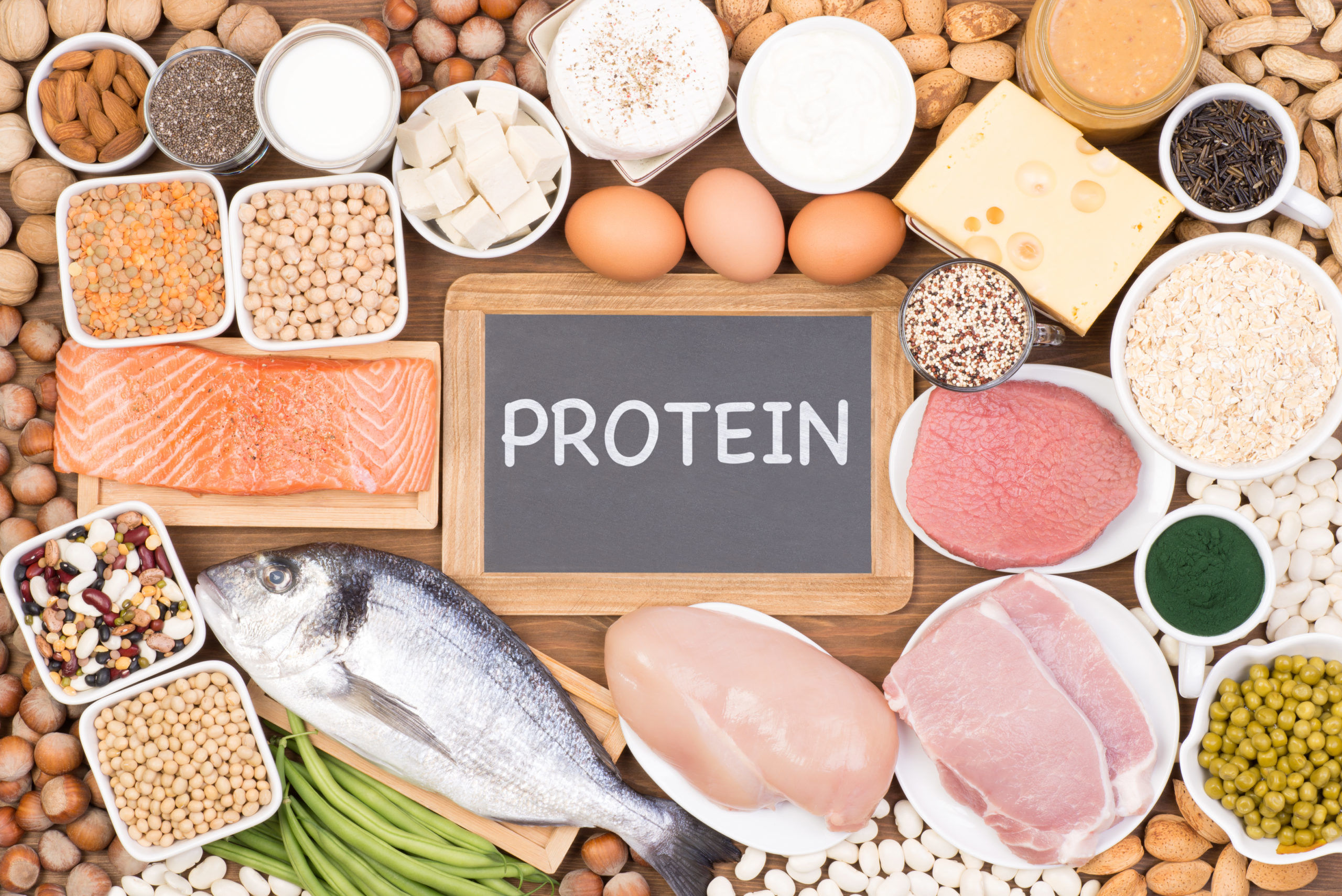The month of March marks National Nutrition Month across the globe. To celebrate, over the course of this month I will be delving into the following vital nutrients as part of any healthy balanced diet – Protein, Carbohydrates & Healthy Fats.
What is Protein?
Proteins are an essential part of the human diet. It is suggested that the body consists of roughly 16% protein. So you can imagine the importance of this particular nutrient to a person’s overall health. The science behind protein is that it is made up of building blocks, known as amino acids and are used to repair damage.
There are 20 amino acids in total. Only 9 out of these 20 amino acids are deemed ‘essential’. This makes them no more important than the other 11. However, their description refers to our inability to synthesise them, to put it simply we must ingest them as part of our diet!
Why do we need protein?
It is health & fitness ‘bible’ to emphasise protein intake when working towards any type of fitness goal. Protein is a popular talking point for any fitness enthusiast, this is because protein is vital for muscle growth and repair, muscle toning, muscle recovery and overall muscle maintenance. It also acts as a source of energy. If you are training at a high intensity, and not taking in enough protein, you are leaving yourself vulnerable to serious injury and muscle imbalances. This is why protein supplements are so commonly utilised.
How much protein do we need?
According to the World Health Organisation and recommended dietary allowance, estimated daily protein intake for healthy adults is roughly 0.8 g/kg of body weight.
Protein recommendations can also vary depending on age and gender. Additionally, if a person has health conditions there is a risk of protein deficiency meaning their protein needs may increase. Follow the below chart to find out how much daily protein is required at different ages to avoid a progressive nitrogen loss!

Types of Protein
There are two types of protein sources. Animal or Plant based proteins. Both have unique benefits and can be used in synergy with one another.
Animal Based Protein – an excellent source of protein containing plenty of amino acids in favourable amounts. Sources include Meat, poultry, fish, dairy produce and eggs. All of which contain the right combination of amino acids to deem them ‘complete proteins’. This type of protein usually packs more calories along with it, ideal for adding lean muscle mass.
Plant Based Protein – A poorer source of protein based on the fact they contain fewer amino acids and smaller amounts of them overall. Their deficiency in one or more of the essential amino acids results in them being deemed ‘incomplete proteins’. There are exceptions. One example of a plant based complete protein is quinoa. A positive of plant based proteins is the fact that in some cases they have less calories and wont upset your stomach as easily.
Hearing this, it may be easy to assume that animal-based food provides more protein than plant-based food. However, there are exceptions. For example, one cup of tofu has the same number of grams in protein as 3 ounces of steak, chicken or fish. Here we have an example of an animal-based protein diet against a plant based protein diet. Worth noting both types of diet provide us with 64 grams of Protein

A Final Word
It is essential for us to remember the importance of protein not only for strength training, but for your overall health! Protein supplements remain popular options for increasing protein intake and rightly so. However, the key word there is ‘supplement’. Relying on protein shakes for overall protein intake should not be the answer. Everyone can and should meet their protein needs through a variety of whole foods both animal and plant based.
Vinny Pyper – Marketing Co-Ordinator
Published: 06/03/2020

